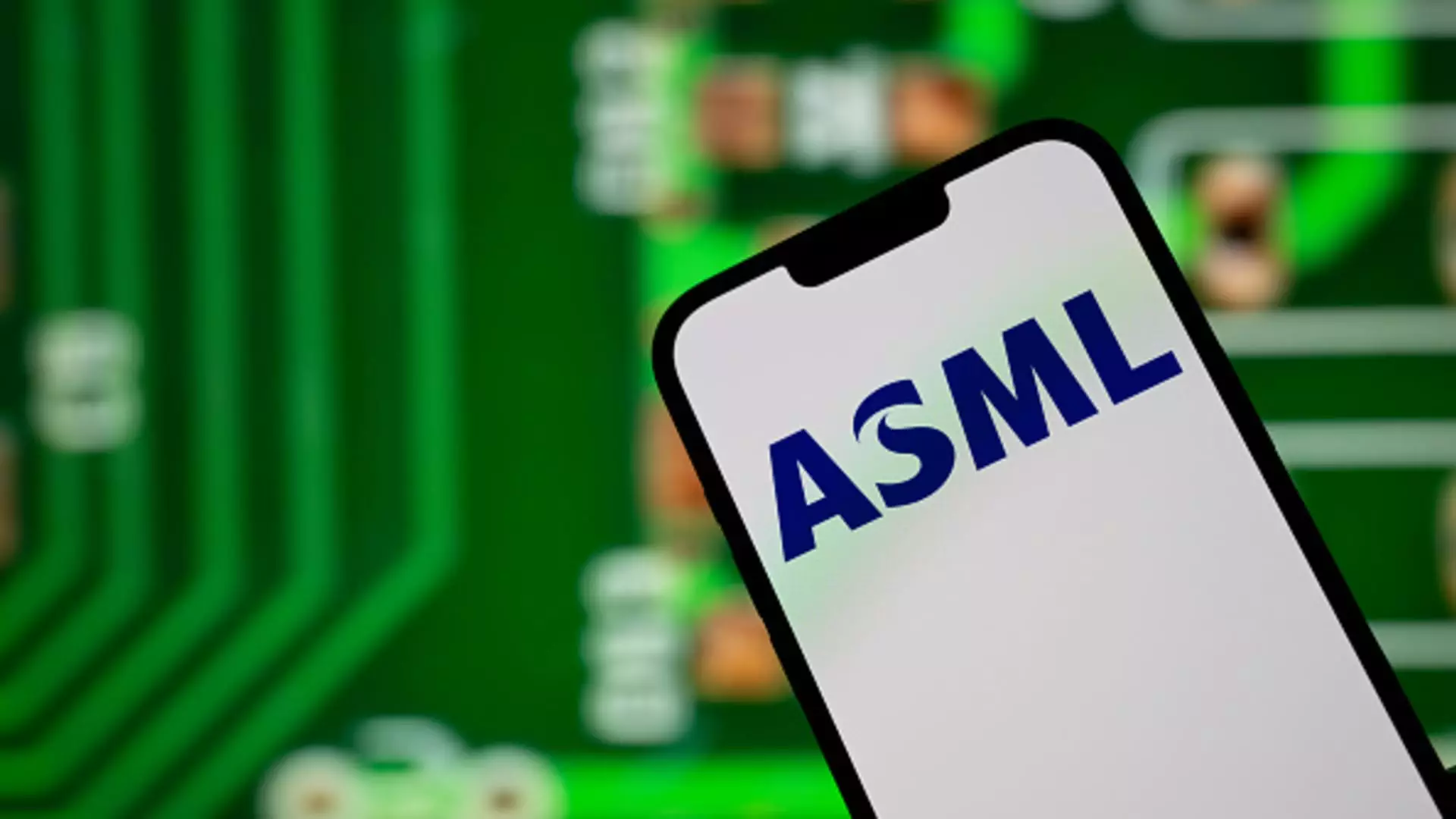ASML, a leader in semiconductor manufacturing equipment, unveiled its latest financial results and sparked a wave of concern among investors with its subdued net bookings. For the first quarter of 2025, the company reported net bookings of €3.94 billion ($4.47 billion), which fell short of the anticipated €4.89 billion threshold reported by Reuters. This discrepancy raises eyebrows in an industry where expectations are often set high and reflect the prevailing optimism around chip demand, especially with the rise of artificial intelligence.
Despite this shortfall, ASML’s financial results showcased a commendable performance in terms of net sales and profits. The company achieved €7.74 billion in net sales and a net profit of €2.36 billion, slightly edging past analyst expectations. These figures illustrate that while ASML is navigating through uncertain demand, it remains financially robust amid market fluctuations.
Artificial Intelligence: A Double-Edged Sword
ASML CEO Christophe Fouquet highlighted the ongoing significance of artificial intelligence as a prime driver of demand for semiconductor technology. However, in the same breath, he acknowledged that certain uncertainties among customers might compel the company to reassess its optimistic revenue targets for 2025. The forecast now suggests an expected revenue range of €30 billion to €35 billion, and while this is a solid outlook, it reflects a hint of caution that investors cannot ignore.
The implication here is twofold: while the growth potential in AI continues to illuminate the semiconductor landscape, challenges with customer confidence can significantly alter revenue trajectories. ASML’s reliance on this dynamic underlines the intricate relationship between technological advancement and market stability, a factor that investors must weigh heavily.
Trade Tariffs: An Ominous Shadow
Compounding these concerns is the evolving landscape of international trade, particularly with regards to the tariffs imposed by the U.S. government. Fouquet brought attention to the “new uncertainty” that tariffs introduce—not only on a macroeconomic scale but also concerning market demands specific to the semiconductor sector. The recent announcement of exemptions for smartphones, computers, and semiconductors from U.S. tariffs offers a temporary respite, yet it leaves the industry in vigilance.
The unpredictability of these trade policies casts a long shadow over global supply chains, highlighting the fragility of semiconductor stocks and their dependency on a stable trading environment. As companies in this sector grapple with tariffs and geopolitical tensions, how they adapt will be crucial in maintaining profitability and market share.
Navigating a Complex Landscape
ASML’s current predicament highlights a fascinating tension within the semiconductor industry: the struggle between robust technological drivers, like AI, and the looming threats posed by trade disputes and customer uncertainties. As the company endeavors to bolster its market position while navigating these challenges, it underscores the inherent volatility that characterizes this essential sector. Stakeholders will need to keep a close watch on these developments, as they will ultimately define ASML’s path forward in an increasingly complicated global marketplace.

